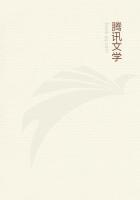Friedrich surveys diligently what he can of all this, from the northern verge. We will now return to Friedrich; and will stay on his side through the terrible Action that is coming. Battle of Prag, one of the furious Battles of the World; loud as Doomsday;--the very Emblem of which, done on the Piano by females of energy, scatters mankind to flight who love their ears! Of this great Action the Narratives old and modern are innumerable; false some of them, unintelligible well-nigh all. There are three in Lloyd, known probably to some of my readers. Tempelhof, with criticisms of these three, gives a fourth,--perhaps the one Narrative which human nature, after much study, can in some sort understand.
Human readers, especially military, I refer to that as their finale. [In Lloyd, i. 38 et seq. (the Three): in Tempelhof, i. 123(the Fourth); ib. i. 144 (strength of each Army), 105-149 (remarks of Tempelhof).--The "HISTORY," or Series of Lectures on the Battles &c. of this War, "BY THE ROYAL STAFF-OFFICERS"--which, for the last thirty or forty years, is used as Text-Book, or Military EUCLID, in the Prussian Cadet-Schools,--appears to possess the fit professorial lucidity and amplitude; and, in regard to all Official details, enumerations and the like, is received as of CANONICALauthority: it is not accessible to the general Public,--though liberally enough conceded in special cases; whereby, in effect, the main results of it are now become current in modern Prussian Books.
By favor in high quarters, I had once possession of a copy, for some months; but not, at that time, the possibility of thoroughly reading any part of it.] Other interest than military-scientific the Action now has not much. The stormy fire of soul that blazed that day (higher in no ancient or modern Fight of men) is extinct, hopeless of resuscitation for English readers. Approximately what the thing to human eyes might be like; what Friedrich's procedure, humor and physiognomy of soul was in it: this, especially the latter head, is what we search for,--had lazy Dryasdust given us almost anything on this latter head! What little can be gleaned from him on both heads let us faithfully give, and finish our sad part of the combat.
Friedrich, with his Schwerin and Winterfeld, surveying these things from the northern edge, admits that the Austrian position is extremely strong; but he has no doubt that it must be, by some good method, attacked straightway, and the Austrians got beaten.
Indisputably the enterprise is difficult. Unattackable clearly, the Austrians, on that left wing of theirs; not in the centre well attackable, nor in the front at all, with that stiff ground, and such redoubts and points of strength: but round on their right yonder; take them in flank,--cannot we? On as far as Kyge, the Three have ridden reconnoitring; and found no possibility upon the front; nor at Kyge, where the front ends in batteries, pools and quagmires, is there any. "Difficult, not undoable," persists the King: "and it must be straightway set about and got done."Winterfeld, always for action, is of that opinion, too: and, examining farther down along their right flank, reports that there the thing is feasible.
Feasible perhaps: "but straightway?" objects Schwerin. His men have been on foot since midnight, and on forced marches for days past:
were it not better to rest for this one day? "Rest:--and Daun, coming on with 30,000 of reinforcement to them, might arrive this night? Never, my good Feldmarschall;"--and as the Feldmarschall was a man of stiff notions, and had a tongue of some emphasis, the Dialogue went on, probably with increasing emphasis on Friedrich's side too, till old Schwerin, with a quite emphatic flash of countenance, crushing the hat firm over his brow, exclaims: "Well, your Majesty: the fresher fish the better fish (FRISCHE FISCHE, GUTE FISCHE): straightway, then!" and springs off on the gallop southward, he too, seeking some likely point of attack. He too,--conjointly or not with Winterfeld, I do not know: Winterfeld himself does not say; whose own modest words on the subject readers shall see before we finish. But both are mentioned in the Books as searching, at hand-gallop, in this way: and both, once well round to south, by the Podschernitz ["Podschernitz" is pronounced PotSHERnitz (should we happen to mentionn it again); "Kyge,"KEEGA.] quarter, with the Austrian right flank full in view, were agreed that here the thing was possible. "Infantry to push from this quarter towards Sterbohol yonder, and then plunge into their redoubts and them! Cavalry may sweep still farther southward, if found convenient, and even take them in rear." Both agree that it will do in this way: ground tolerably good, slightly downwards for us, then slightly upwards again; tolerable for horse even:--the intermediate lacing of dirty lakelets, the fish-ponds with their sluices drawn, Schwerin and Winterfeld either did not notice at all, or thought them insiginificant, interspersed with such beautiful "pasture-ground,"--of unusual verdure at this early season of the year.















